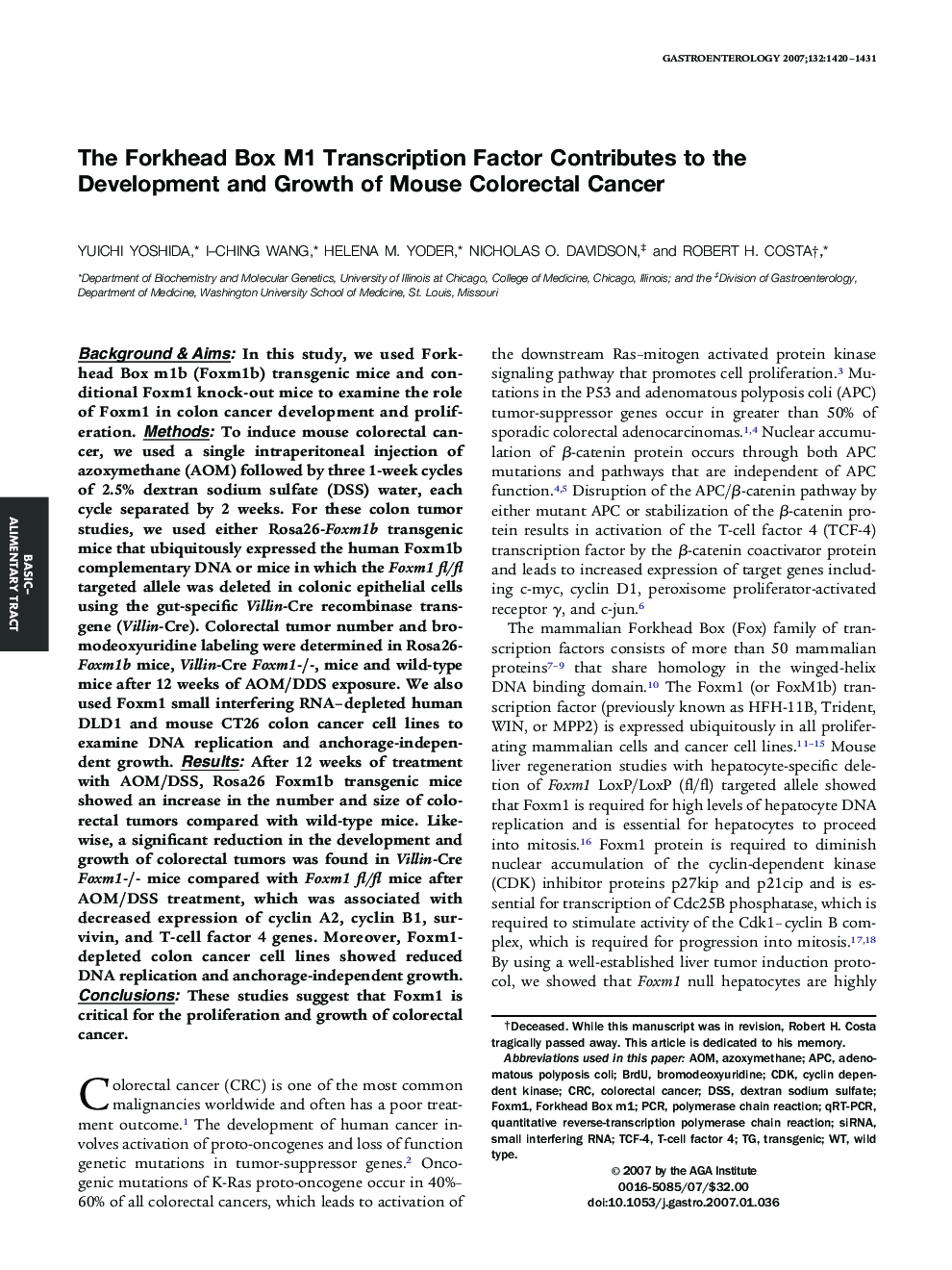| Article ID | Journal | Published Year | Pages | File Type |
|---|---|---|---|---|
| 3298453 | Gastroenterology | 2007 | 12 Pages |
Background & Aims: In this study, we used Forkhead Box m1b (Foxm1b) transgenic mice and conditional Foxm1 knock-out mice to examine the role of Foxm1 in colon cancer development and proliferation. Methods: To induce mouse colorectal cancer, we used a single intraperitoneal injection of azoxymethane (AOM) followed by three 1-week cycles of 2.5% dextran sodium sulfate (DSS) water, each cycle separated by 2 weeks. For these colon tumor studies, we used either Rosa26-Foxm1b transgenic mice that ubiquitously expressed the human Foxm1b complementary DNA or mice in which the Foxm1 fl/fl targeted allele was deleted in colonic epithelial cells using the gut-specific Villin-Cre recombinase transgene (Villin-Cre). Colorectal tumor number and bromodeoxyuridine labeling were determined in Rosa26-Foxm1b mice, Villin-Cre Foxm1-/-, mice and wild-type mice after 12 weeks of AOM/DDS exposure. We also used Foxm1 small interfering RNA–depleted human DLD1 and mouse CT26 colon cancer cell lines to examine DNA replication and anchorage-independent growth. Results: After 12 weeks of treatment with AOM/DSS, Rosa26 Foxm1b transgenic mice showed an increase in the number and size of colorectal tumors compared with wild-type mice. Likewise, a significant reduction in the development and growth of colorectal tumors was found in Villin-Cre Foxm1-/- mice compared with Foxm1 fl/fl mice after AOM/DSS treatment, which was associated with decreased expression of cyclin A2, cyclin B1, survivin, and T-cell factor 4 genes. Moreover, Foxm1-depleted colon cancer cell lines showed reduced DNA replication and anchorage-independent growth. Conclusions: These studies suggest that Foxm1 is critical for the proliferation and growth of colorectal cancer.
